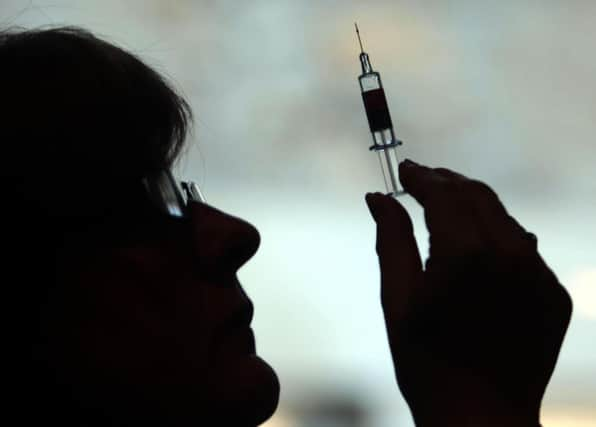Covid: How racism could hinder take-up of a vaccine by Black people – Dr Gwenetta Curry


Black people are 2.7 times as likely to die from the virus compared to their white counterparts with Asian people 1.5 times more likely to die than whites. The announcement of a promising vaccine signals that things could get back to “normal” sooner rather than later.
The benefits of vaccines are clear as they have led to the eradication of many infectious diseases in the past such as smallpox or polio, yet there remains a problem that must be contended with, how do you convince the public the vaccine is safe?
Advertisement
Hide AdAdvertisement
Hide AdWhile white racial and ethnic groups may trust the practice of medicine and the benevolence of the government, other racial and ethnic groups remain apprehensive given the racist history of medical experimentation.
Black people have historically been used as test subjects for new medications and medical procedures. In the United States, for example, the Tuskegee Experiment remains etched in the memory of many Black people in the South. It began in 1932 when the public health service began to record the natural history of syphilis in hopes of justifying treatment programmes for Blacks.
The official name was “Tuskegee Study of Untreated Syphilis in the Negro Male". The researchers told the participants they were being treated for “bad blood” and they were given free medical exams, meals, and burial insurance. The study went on from 1932 to 1972 despite doctors knowing there was a highly effective treatment available as early as 1947. This meant that Black men suffered and died for decades after treatment was available without their knowledge or consent.
And what happens in the US can affect opinion in the UK. Convincing people from these groups to take part in the vaccination uptake will remain a strain as many still remember the medical atrocities done to their communities.
This history of racism has bred generational distrust of the medical establishment. Even today, Black people are less likely to participate in clinical trials, and the Covid-19 trials are no different. One vaccine trial in Oxfordshire only included 23 Black people.
The cultural mistrust racial and ethnic groups have of medicine is only compounded by their economic marginalisation and working conditions. Black and Asian people in the UK disproportionately account for those working in front-facing occupations with limited to no paid time off. Many will see participating in a vaccine trial as a risk they are not willing to take due to the potential loss in work hours.
A vaccine promising 94 per cent effectiveness is a great leap forward, but the distribution of these vaccines will have to be thoroughly planned. Gaining the trust of ethnic minority populations as well the consideration of various cultural practices.
Reaching these “hard-to-reach” communities will mean working closely with community leaders to better understand the needs and concerns of each group. It’s important to stress the arrival of vaccination will not mean immediate eradication of the virus. Everyone will have to continue to wear a mask and maintain social distance until the virus has reached a level where it is no longer a threat to society.
Advertisement
Hide AdAdvertisement
Hide AdDr Gwenetta Curry is a lecturer of race, ethnicity and health at Edinburgh University
A message from the Editor:
Thank you for reading this article. We're more reliant on your support than ever as the shift in consumer habits brought about by coronavirus impacts our advertisers.
If you haven't already, please consider supporting our trusted, fact-checked journalism by taking out a digital subscription.
Comments
Want to join the conversation? Please or to comment on this article.